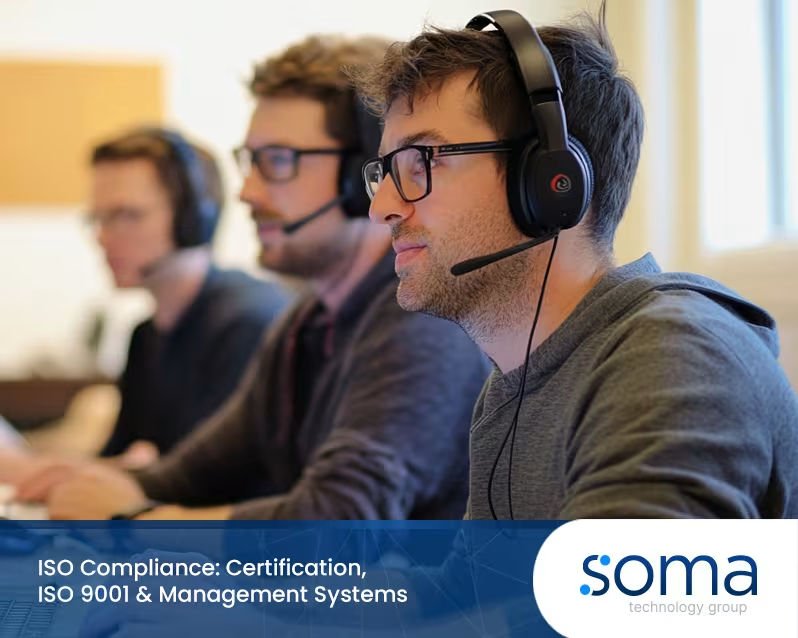
IT Security Companies for Cybersecurity, Cyber Threats & Data
Growing businesses with 20 to 1000 endpoints face increasing risks from cyber threats. As your team expands, so does your digital footprint—and the need for strong protection. If you have 20 or more employees on your team, this blog is for you. We’ll explore how IT security companies support business continuity, reduce risk, and help you stay compliant. You’ll also learn what to look for in a provider, and how to make informed decisions about your cybersecurity strategy. Topics include incident response, penetration testing, and managed security services.
Understanding IT security companies
IT security companies play a critical role in protecting businesses from cyberattacks and data breaches. These companies offer a range of services, from basic antivirus protection to advanced threat detection and response. Their goal is to help businesses maintain secure systems and avoid costly disruptions.
For businesses in Australia, especially in areas like the Gold Coast, Queensland, Australia, choosing the right provider is essential. IT security companies in Australia understand local compliance requirements and industry-specific risks. They also offer tailored solutions to match the scale and complexity of your operations.

Key areas of cybersecurity support
In today’s digital landscape, robust cybersecurity is no longer optional—it’s essential. From protecting sensitive data to ensuring business continuity, effective cyber defences are crucial for organisations of all sizes. Cybersecurity support spans a wide range of services designed to safeguard your systems, networks, and users against an ever-evolving threat landscape. Below, we explore the key areas of cybersecurity support that help businesses stay secure, compliant, and resilient.
Threat detection and monitoring
Continuous surveillance of your systems to identify, analyse, and respond to potential cyber threats before they cause harm.
Firewall and network security
Implementation and management of firewalls, intrusion prevention systems, and secure network configurations to safeguard against unauthorised access.
Endpoint protection
Securing devices such as laptops, mobiles, and desktops with antivirus software, encryption, and policy controls to reduce vulnerability.
Email security
Filtering and scanning tools that protect against phishing, malware, and spoofing attacks targeting business communications.
Data backup and recovery
Regular backups and disaster recovery solutions that ensure your business can quickly recover data in the event of a cyber incident.
Access management and user authentication
Use of strong password policies, multi-factor authentication, and role-based access controls to prevent unauthorised access to sensitive systems.
Security awareness training
Ongoing staff education programmes to help employees recognise and respond to common cyber threats such as phishing and social engineering.
Compliance and risk management
Ensuring adherence to data protection laws (e.g., GDPR) and industry-specific regulations, while identifying and mitigating cyber risks.
Incident response planning
Development and testing of action plans that outline how to react swiftly and effectively in the event of a security breach.
Vulnerability assessments and penetration testing
Regular testing to uncover weaknesses in your infrastructure before attackers can exploit them.
Benefits of working with IT security providers
Here are some of the main advantages of partnering with IT security companies:
- Faster detection and response to cyberattacks
- Access to expert security professionals and tools
- Compliance with industry regulations and standards
- Reduced downtime and financial loss from breaches
- Scalable services that grow with your business
- Peace of mind knowing your systems are monitored 24/7

Why local expertise matters
Choosing IT security companies in Australia gives you access to providers who understand your legal and operational environment. They can help you comply with the Australian Privacy Act and other local regulations. This is especially important for industries like healthcare, finance, and education.
Top IT security companies also offer on-site support and faster response times. If you’re based in the Gold Coast or nearby, working with a local provider can simplify communication and improve service delivery.
Core services offered by top providers
IT security companies offer a wide range of services. Below are some of the most common and valuable ones.
Leading cyber security
Leading cyber security services include threat intelligence, advanced analytics, and proactive risk management. These help businesses stay ahead of evolving threats.
Endpoint protection
Endpoint protection secures devices like laptops, phones, and servers. It includes antivirus, encryption, and remote wipe capabilities.
Compliance consulting
A company in Australia offering IT security services often includes compliance consulting, helping you meet national standards like ISO 27001.
Leading cyber security company
A leading cyber security company will provide 24/7 monitoring, incident response, and regular system audits. They also invest in ongoing staff training and technology upgrades.
Data security
Data security focuses on protecting sensitive information from loss or theft. Services include encryption, access control, and secure backups.
Penetration testing
Penetration testing simulates attacks to find vulnerabilities. IT security companies use this to identify and fix weaknesses before real attackers do.
Top cybersecurity tools
Top cybersecurity tools include SIEM (Security Information and Event Management), firewalls, and threat detection platforms. These tools help monitor and respond to threats in real time.

Planning and implementation tips
When working with IT security companies, start with a clear understanding of your current risks and goals. A good provider will begin with a security assessment to identify gaps. From there, they’ll recommend solutions that match your budget and needs.
Make sure to involve your internal IT team in the process. This helps align external services with your existing systems. Also, schedule regular reviews to keep your security strategy up to date.
Best practices for working with IT security partners
To get the most from your IT security companies partnership, follow these proven tips:
- Define clear goals and expectations from the start
- Choose a provider with industry-specific experience
- Ask for regular reports and performance metrics
- Train your staff on cybersecurity awareness
- Review and update your security plan annually
- Test your incident response plan at least once a year

How soma technology group can help with IT security companies
At soma technology group, we understand the challenges growing businesses face when it comes to cybersecurity. Whether you're managing 20 or 1000 endpoints, protecting your data and systems is critical. We help you identify risks, implement reliable systems, and stay compliant with Australian regulations.
Our team offers a full range of services, from endpoint protection and penetration testing to 24/7 monitoring and incident response. If you're looking for a trusted partner among IT security companies, we're here to support your business every step of the way.
Frequently asked questions
What is the role of cybersecurity in business?
Cybersecurity protects your systems, data, and users from cyber threats. It includes tools and practices that reduce the risk of attacks like ransomware and phishing.
Businesses often work with security service providers to manage their cybersecurity. These experts use network security tools and cloud security platforms to monitor and respond to threats.
How do cyber threats affect small to medium businesses?
Cyber threats can lead to data loss, financial damage, and reputational harm. Small businesses are often targeted because they may lack strong defenses.
Managed security services help reduce this risk by providing 24/7 monitoring and quick response. These services include penetration testing and real-time alerts.
Why should I work with security companies?
Security companies offer specialised skills and tools that most in-house teams don’t have. They help you stay secure while focusing on your core business.
They also provide managed security, incident response, and access to security professionals who stay current on threat trends.
What makes cyber security companies different from IT providers?
Cyber security companies focus only on protecting your systems and data. They offer services like penetration testing, endpoint protection, and threat detection.
In contrast, general IT providers may not offer deep security expertise. Cybersecurity companies also provide cloud security and compliance support.
How do I choose a trusted cyber security partner?
Look for certifications, client reviews, and a clear service agreement. A trusted partner will offer ongoing support and transparent reporting.
They should also provide managed security services, network security tools, and access to trained security professionals.
What is incident response and why is it important?
Incident response is the process of managing a cyberattack or breach. It includes identifying the issue, containing it, and restoring normal operations.
IT security companies offer incident response plans and teams. These include penetration testing, cloud security tools, and expert guidance to reduce damage.
.svg)
.webp)


